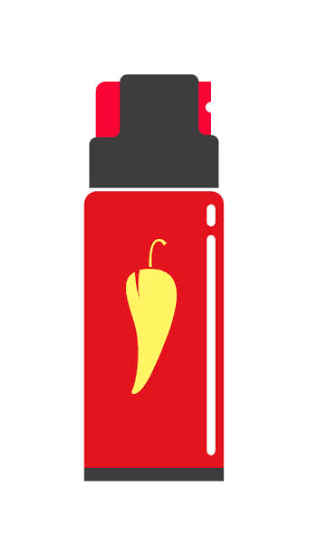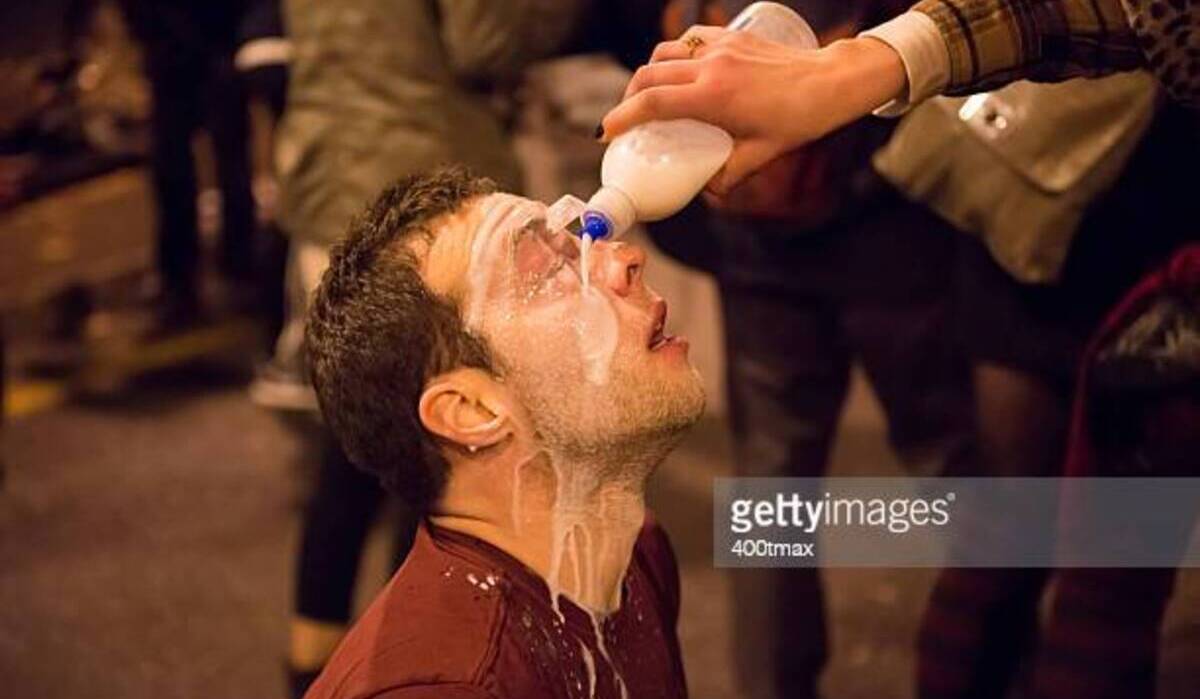Pepper spray, commonly referred to as OC spray, is a widely used self-defense tool. Its primary ingredient is capsaicin which is derived from chili peppers. This capsaicin is what is responsible for the burning sensation one feels upon contact with pepper spray.
Although many people understand pepper spray to be a deterrent, some, however, have been curious as to whether it is safe to use. There have even been questions like “Can pepper spray kill you?” We delve into the details to provide a comprehensive answer.
The Science Behind Pepper Spray
1. Active Ingredient: Capsaicin
At the core of pepper spray’s potency is capsaicin, an organic compound found in chili peppers. This compound stimulates the pain receptors, particularly in the eyes, nose, and mouth, causing temporary blindness, difficulty in breathing, and intense burning sensations.
2. Scoville Heat Units (SHU): Measuring Potency
Pepper sprays are graded based on their Scoville Heat Units (SHU), a measure of the spiciness or heat of chili peppers and other spicy foods. Commercially available pepper sprays typically range from 2 million to 5.3 million SHU, making them considerably more potent than the average jalapeño pepper, which ranges between 2,500 to 8,000 SHU.
Direct Health Implications of Pepper Spray Exposure
1. Immediate Effects
Upon direct contact, pepper spray causes:
- Involuntary eye closure: The eyes shut tightly, often leading to temporary blindness.
- Respiratory distress: Breathing can become labored, with sensations of choking or gagging.
- Skin irritation: A burning sensation is felt on the skin, which can become red and inflamed.
2. Long-term Effects and Vulnerabilities
While the immediate effects of pepper spray are temporary, lasting between 30 minutes to a few hours, certain individuals might be at a higher risk of experiencing complications. Individuals with asthma or other respiratory conditions, the elderly, and infants are particularly vulnerable.
Can Pepper Spray Lead to Fatalities?
While typical exposure to pepper spray doesn’t cause death, there have been cases where its application was linked to fatal events, often due to additional factors. Consider these scenarios:
- Underlying Health Issues: Those with respiratory problems, heart diseases, or other health concerns might face extreme reactions, possibly leading to severe complications or even death.
- Excessive Exposure: Extended or overly intense exposure, particularly in tight spaces with limited airflow, can magnify pepper spray’s effects.
- Usage with Physical Restraints: In some instances, the combination of pepper spray and physical restraints can cause positional asphyxiation, a life-threatening situation.
Safety Guidelines and Recommendations
If you or someone you know comes in contact with pepper spray, here are some immediate steps to mitigate its effects:
- Avoid Making Contact with the Irritated Spot: Rubbing or touching can distribute the capsaicin more, worsening the burn.
- Flush with Cold Water: Quickly wash the affected spot with cold water. Avoid hot water since it can amplify the burn.
- Use Soap Without Oil: Clean the area with soap that doesn’t contain oil to help clear away the residue. Refrain from applying creams or lotions right after exposure.
- Get Medical Help: If an individual shows intense discomfort or has a known health issue, it’s essential to get medical assistance promptly.
Conclusion: Weighing the Risks and Benefits
Pepper spray is an effective means of self-defense. Even though it’s generally non-lethal, it’s vital to know its impact, potential hazards, and proper usage guidelines. Typically, it serves to deter, leading to brief discomfort. But, as with any instrument, its outcome is shaped by the circumstances of its application. Being educated and using it judiciously helps to guarantee its main objective: safeguarding.
Bliss Ferdinand is a resilient single mother and the founder of pepperspraymum.com, a blog dedicated to empowering women and promoting personal safety. With a passion for self-defense, Bliss shares her knowledge and experiences to help other mothers protect themselves and their families. Through her blog, she educates her readers about the effective use of pepper sprays, offering valuable insights, product reviews, and practical tips on staying safe in various situations. Bliss’s commitment to her community has inspired many women to take charge of their own security, making pepperspraymum.com a go-to resource for those seeking practical advice and peace of mind


